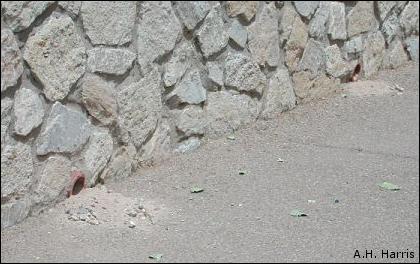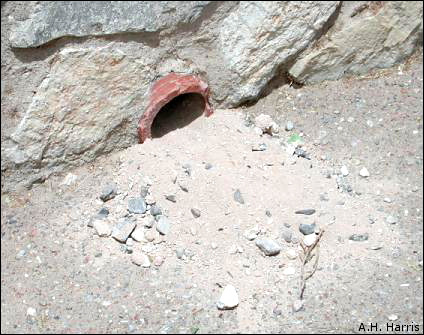

I'm sure you've heard of junkyard dogs and stonewalling politicians, but how about stonewall squirrels? As man has invaded lands to build cities in what once were the domains of wild creatures, these native animals have had but few options—leave, adapt, or die. Refusing to be intimidated, a few bold Chihuahuan Desert species make do, managing one way or another to live with humans, sometimes in strange ways and sometimes even expanding their habitats.
The gray- and white-mottled Rock Squirrel normally lives in rocky
areas. Burrows tunneling within the stony ground are protected from badgers or other
predators that might otherwise dig them out. But in asphalt-paved cities, where could
such habitat be found? Where else but in the stone retaining walls so common in El
Paso. Tall walls require drainage holes, usually a short, tiled tunnel piercing the
wall—a tunnel of just the right size for our squirrels. A pile of soil below such a
drainage hole tells it all—tucked away behind that wall is a squirrel, safe and sound
from any itinerant badger.

Contributor: Arthur H. Harris, Laboratory for Environmental Biology, Centennial Museum, University of Texas at El Paso.
Desert Diary is a joint production of the Centennial Museum and KTEP National Public Radio at the University of Texas at El Paso.

Urban apartments of Rock Squirrels (Spermophilus variegatus). UTEP campus, photograph by A.H. Harris.

Closeup of the entrance to one of the burrows seen in the picture above. UTEP campus, photograph by A.H. Harris.